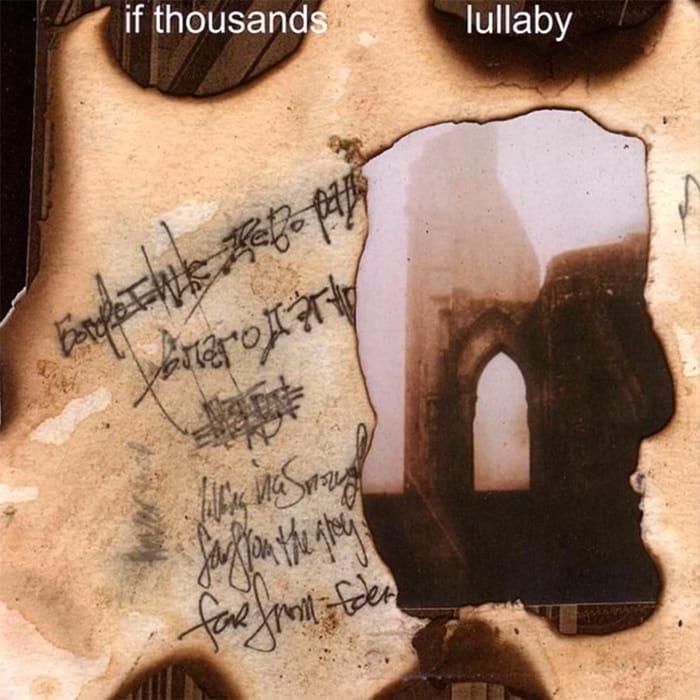Lullaby by If Thousands (Review)

There’s a warning sticker affixed to the case of Lullaby that states “May Cause Drowsiness — Use Care When Operating A Car Or Dangerous Machinery.” Now normally, that would be the kiss of death for most bands. But It feels incredibly appropriate when you start taking in If Thousands’ latest effort. There’s certainly a drowsy feel that permeates the nearly 60 minutes on this disc, and one that constantly remains inviting throughout countless listens.
Based out of Duluth, Minnesota — those Minnesota winters must be to blame for the state’s crop of somnambulistic-oriented bands (e.g., Low, Best Boy Electric, Rivulets) — If Thousands is the duo of Aaron Molina and Christian McShane. At first, the pairing of a classically trained vocalist with a bassist from punk bands would seem like the last thing to work. At the very least, it would produce music very different than what If Thousands actually create. But the more you think about it, the more it makes sense, as if the duo’s backgrounds sort of cancel each other out and open up new avenues and depths.
And believe me, if there’s one thing Lullaby has in spades, it’s depth. The album’s core is a seemingly endless grey drone that drenches the CD in static like a line of rainy clouds on the horizon. But as with the best drone music, it’s far from actual static. Rather, it moves and changes like fog as it seeps down into the valleys as evening approaches. This is most likely due to the manner in which the album was recorded. Rather than mic the instruments, the recording room was set up with 12 microphones strategically placed “to give the listener a real sense of spatial sonic distinction.”
Buried deep within that “spatial sonic distinction” are Molina and McShane making all sorts of noise with what I assume are battered guitars, analog synths with their transistors torn out, and other assorted noisemakers. You get the feeling that if you could just peel back the layers of noise, you could figure out what the duo is doing. But as it stands, you’re left with the only vaguest impressions.
Whenever something does break through, such as the sad Moog on “And the Scent of the Trees” or the static-riddled spoken word that opens and closes the album, it feels like a discovery. But more often than not, the duo is content to hide behind the cloud and merely tickle your consciousness with bizarre little noises, intriguing loops, and infinitely long reverberations.
The duo recommends that you play this album at as low a volume as possible, using it as a sleeping aid. But for me, the ultimate test of a drone record is if it stands up to both passive and active listening. If I can find the record as enthralling when I listen to it at work as it is when I drift off to sleep, then that’s some good drone. Lullaby meets both of those criteria, and then some.